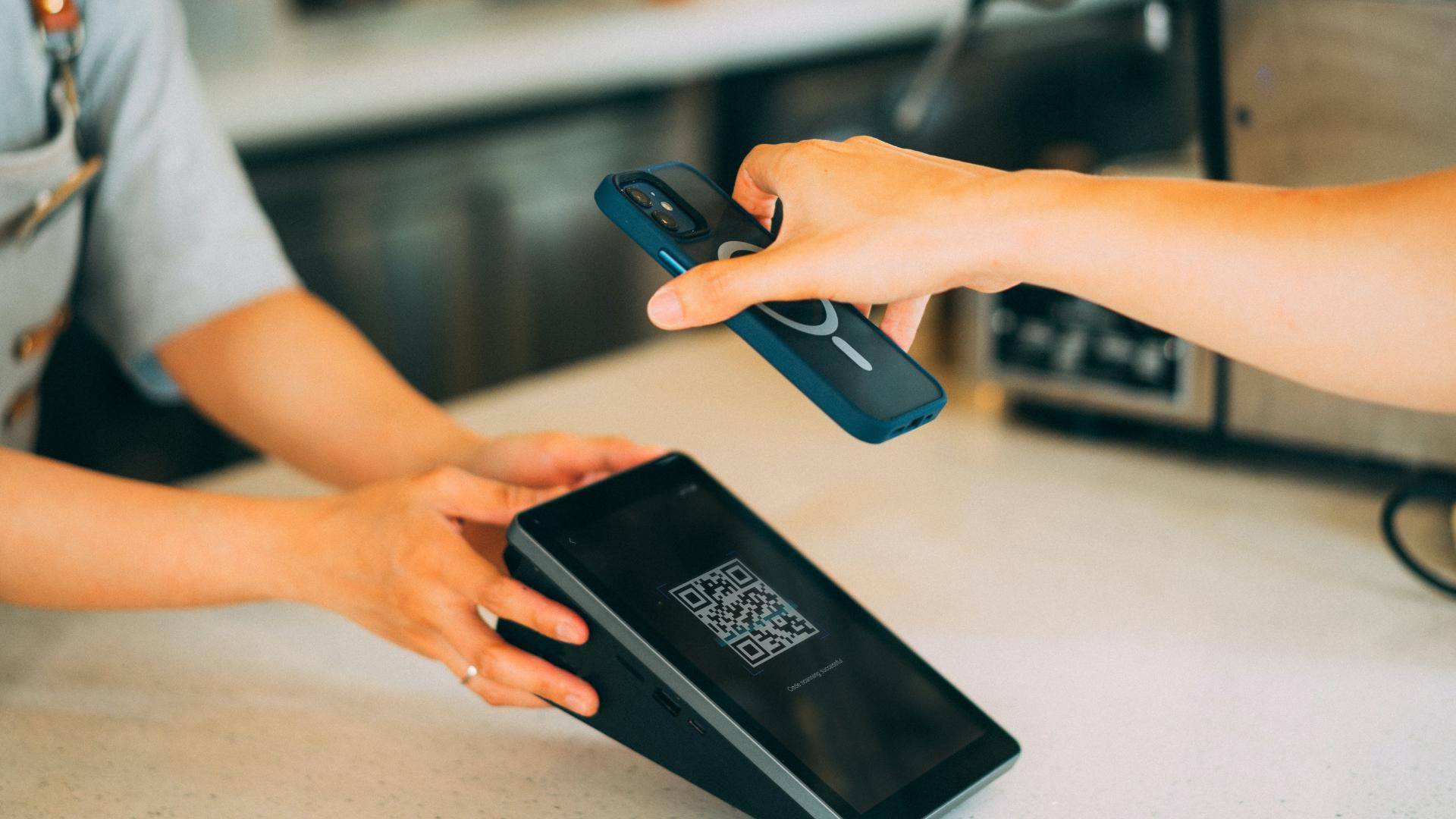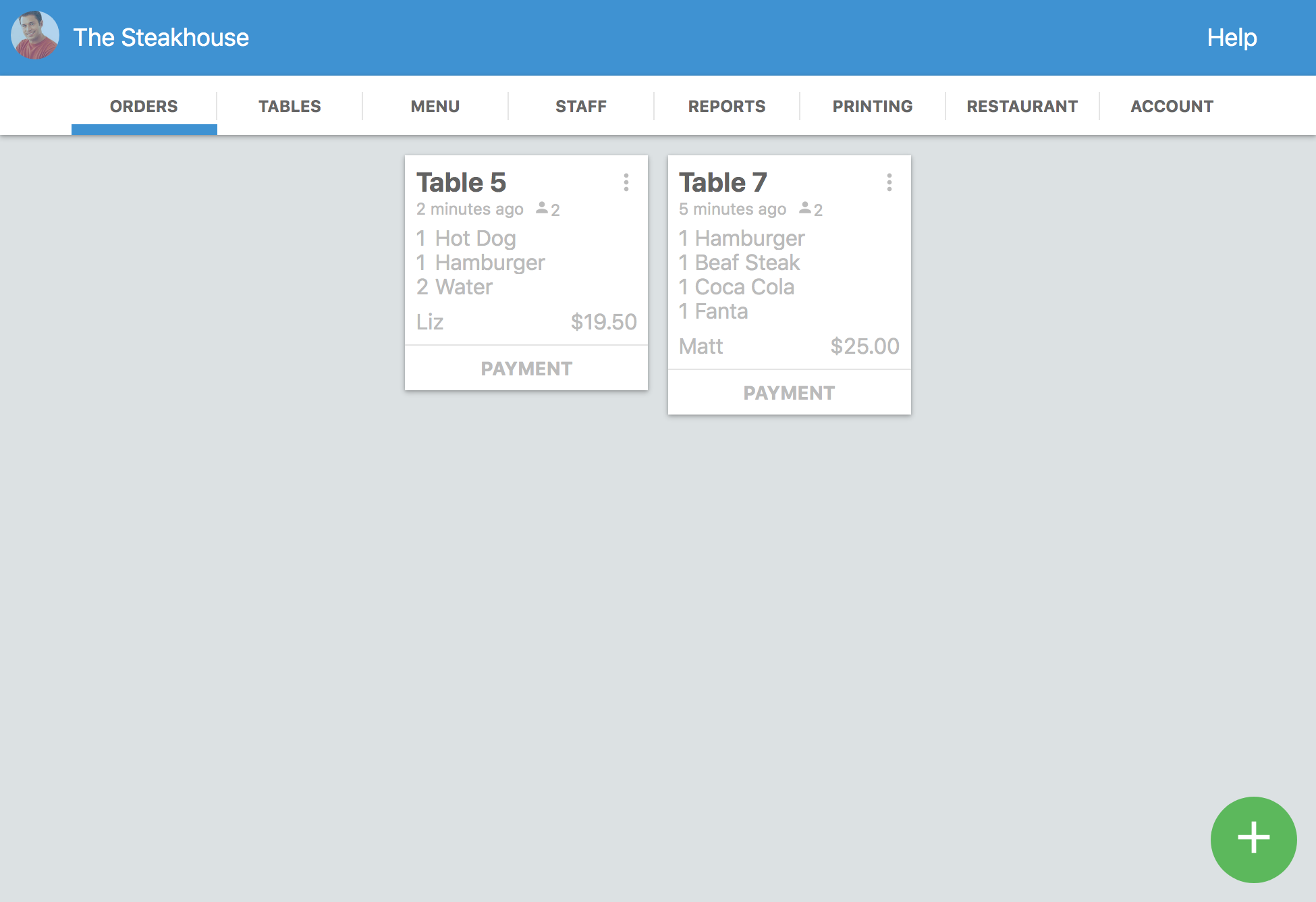In the past years, there has been a growing interest in the impact of different generations on different markets and industries. The internet is full of articles discussing the implications of the generational shift. Now, it’s time to add a grain of sand to the pile and discuss how the coming generations will affect the restaurant industry—specifically, the equally famous and infamous Gen Z. In this article, we’ll talk about:
- What is Gen Z?
- The positive and negative impacts this generation will have on restaurants
- How the generation will affect the industry as part of the workforce
- More insights and tips that can help you prepare your restaurant properly
The change is already happening—the oldest Gen Z people are already part of the workforce because they’re 27 years old! If you feel your restaurant is failing to attract new customers in this segment or if you’re struggling to maintain young employees who are part of this generation, this article will help you. Let’s dig in!
What Is Gen Z?

Generation Z is the demographic cohort of people born between 1996 and 2010, which means people aged 13 to 27 years old. Depending on where you live, people 16 years of age and older are already part of the workforce and likely also part of your audience. The previous generation is Millennials, who were born from 1981 to 1996.
Here are some specific ways in which Gen Z is different from Millennials:
- Tech savviness: Gen Z is the first generation to grow up with the internet and smartphones, and they are more comfortable with technology than any previous generation. They are also more likely to use social media and other online platforms to stay connected with friends and family, as well as other groups or causes.
- Social consciousness: Gen Z is more socially conscious and activist than Millennials. They are more likely to be concerned about issues such as climate change, social justice, and LGBTQ+ rights. They are also more likely to volunteer and donate to charitable causes.
- Independence: Gen Z is more independent than Millennials. They are more likely to live on their own at a younger age and to be financially independent from their parents.
- Financial conservatism: Gen Z is more financially conservative than Millennials. They are more likely to save money and to be cautious about debt.
- Career goals: Gen Z is more likely to prioritize work-life balance and to be interested in careers that make a positive impact on the world.
Still, remember that these are key differentiators from a general perspective—there are clear outliers and people who simply don’t fit the generation’s mindset.
Why is Gen Z important to the restaurant industry?

Gen Z is crucial to the restaurant industry globally because they are the largest generation in history, accounting for at least 30 percent of the population. They are also the first generation to grow up in a globalized world, and they are more likely to travel and eat out than previous generations. Here are some specific ways this generation is impacting the restaurant industry globally:
- Growth of international cuisines: They are likelier to try new cuisines than previous generations. That’s why there’s a growing demand for international restaurants and cuisines. That also affects restaurants that don’t take advantage of this trend due to their inflexible concepts.
- Increased popularity of fast casual dining: They are looking for dining experiences that are convenient and affordable. Fast-casual dining restaurants, which offer high-quality food at a reasonable price, are becoming increasingly popular with Gen Z consumers. In turn, that means full-service restaurants must adapt more than ever to attract this generation, or at least strive to keep the previous generations loyal to the business.
- Growing demand for sustainable and ethical dining options: Gen Z is more likely to be concerned about social issues such as sustainability and fair labor practices. They are more likely to choose restaurants that source their ingredients sustainably and ethically and that treat their workers fairly. That means restaurants must adapt to have more sustainable and environmentally responsible operations.
- Rise of digital dining: They are the first generation to grow up with the internet and smartphones. They are more likely to use digital platforms to find restaurants, order food, and pay their bills. That affects restaurants in numerous ways: they need to adapt to have a clean and responsible internet presence, top-notch customer service, and creative ways of interacting with customers. Additionally, customers from this generation have a lot of power because their social media is a method for spreading information. If they post a negative review about a restaurant (sometimes even without evidence) and it goes viral locally, the business is doomed.
Overall, Gen Z is a major force shaping the restaurant industry globally. Restaurants need to adapt to meet the needs of this generation to be successful in the future.
How Will Gen Z Affect the Future of the Restaurant Industry?
In this section, we’ll delve deeper into the different ways Generation Z will affect the restaurant industry in the future. A percentage of this generation is already part of the restaurant industry and is actively causing changes in it as you read this. That only means these effects are yet to increase, so the changes you must apply to your business are much more necessary for survival.
How Gen Z Will Affect the Restaurant Industry Positively
First, let's talk about how this generation is having a positive impact on the restaurant industry, which will only increase in the future.
1. Increased Demand for Convenience and Customization

The restaurant industry has been adapting slowly to offer more convenience to customers. That goal has evolved through the years. It caused the creation of fast food restaurants to improve convenience by making the process of preparing food much faster. However, numerous businesses have evolved to provide even more comfort in today’s technological landscape. A clear example is the current trend of ghost kitchens, food trucks, delivery services, and much more convenient versions of food businesses. We talked about this in our article about why light food businesses are trending. That benefits the industry, specifically food industry entrepreneurs, because the barrier to entry is much more manageable. Food businesses today don’t require the same infrastructure to be considered legitimate businesses. That has created business opportunities that have helped numerous entrepreneurs enter the industry on a smaller scale and with a smaller budget. At the same time, it has benefits like cultural preservation through food and more equal opportunities for people with smaller budgets, among other things.
2. Online Ordering and Delivery

Online ordering and delivery benefit restaurants because it’s a method of local propagation. With a strong enough brand and value proposition, any restaurant that’s highlighted in a delivery app can boost its sales and profitability. Apps such as Uber Eats also extend the range of restaurants locally, which is advantageous considering the range of a restaurant is usually less than a three-mile radius. Additionally, in cities where online delivery is normalized, restaurants increase their sales, productivity, and profitability by maintaining an open restaurant as well as serving delivery and takeout orders.
3. Self-service kiosks and QR Codes
The pandemic affected different generations. However, Gen Z people easily adapted to businesses operating with self-service kiosks and QR codes, which diminished interactions inside restaurants. They adapted easily because they are a digital generation and know intuitively how to use different technologies. The restaurant industry adopted all of these technologies after the pandemic and is now normalizing them. The best part is that they also benefit restaurants because they require fewer servers, reducing operational costs significantly.
4. Customization Options for Dishes
Another thing that has changed due to Gen Z’s social justice mindset is customization. Nowadays, it’s much more important to offer customization options to restaurant patrons, especially in the case of dietary restrictions and preferences. Initially, it was harsh for restaurants to adapt to this normality. However, it’s easy to understand why this is a great idea and highly beneficial for businesses: you’re catering to a wider audience by making negligible changes in the restaurant itself. Customer groups prefer restaurants that offer options, especially because they don’t exclude their friends and family who have dietary restrictions or specific diets. That small change can be the difference between having an empty restaurant and a full restaurant.
5. Increased Demand for Sustainable and Ethical Dining Options

That is a benefit that didn’t seem like one at first. Restaurant owners have always struggled to keep costs low, especially prime costs, which are mainly food costs. At first, catering to the needs or desires of people who demand sustainable options was an issue. However, the advantage of sourcing ingredients sustainably and ethically is that there are very few restaurants doing it. These restaurants have seen an increase in sales and profits, especially if they have created business relationships with the sources of their food, e.g., farms and small-scale local producers. Additionally, locally sourced ingredients are of much better quality. They’re also healthier because they’re less processed and grown ethically.
6. Increased Demand for Technology in the Dining Experience
There’s been an increase in the use of mobile apps for ordering food, paying for meals, and viewing menus throughout the industry. Some restaurants have even gone as far as creating interactive dining experiences, such as virtual reality games or food preparation demonstrations. Those are attractive restaurant concepts that keep bringing in customers. Additionally, mobile apps, efficient POS systems such as Waiterio, and different payment methods make the operations of a restaurant more straightforward. That, in turn, increases the number of tables a restaurant can serve at the same time, reduces costs, and increases productivity and customer satisfaction at the same time.
How Gen Z Will Affect the Restaurant Industry Negatively
Of course, as with changes across different industries, Gen Z has also hurt the food industry in different ways.
1. Higher Expectations
Gen Z is a digital native generation with high expectations for technology and customer service. That means they know what and how they want it, and restaurants must adapt or die. These adaptations, such as installing a restaurant POS system to increase ease of payment and service quality, can be costly, especially considering hardware and software costs.
Note: If your business struggles to apply these changes, check out Waiterio. Our POS system is affordable and highly compatible with different devices and operating systems, which can lower the cost of implementing it in your business. Learn more about Waiterio here!
2. Lower Dining Budgets

Gen Z is the first generation to grow up during a recession, and they are more likely to be budget-conscious than previous generations. That means that, as a restaurant owner or manager, you must increase your cost-cutting efforts. You must make the right decisions to lower your business’s operating costs as much as you can without sacrificing quality in any way. That makes managing a restaurant much more difficult, especially for small brick-and-mortar restaurants and fast-food joints that are not franchises.
3. Less Loyalty to Brands
Gen Z is likelier to try new things and is less loyal to brands than previous generations. That means you must put even more effort into loyalty programs and effective promotions tailored to your customer’s needs. It also means your restaurant must strive to attract more customers, too. That might include diversifying your marketing methods and focusing on digital marketing, social media, and influencer marketing. The bright side is that the ROI on these strategies is great!
How Gen Z Will Affect the Restaurant Industry as Workers
Gen Z affects the industry as consumers and as part of the workforce. Here are a few ways they will change the industry.
1. Different Work Ethic
Gen Z is more likely to value work-life balance and flexibility than previous generations. We’ve talked about this in our guides about hiring and maintaining back-of-house and front-of-house employees, as well as our guide on how to manage employees. Nowadays, making employees feel comfortable, safe, and important within your restaurant’s organization is vital. They also need respect and fairness. For those reasons, it’s more important than ever to create highly detailed and grounded job offers and descriptions.
2. Different Skills
Gen Z is more likely to have digital skills that are valuable in the restaurant industry. That will greatly change the management and marketing aspects of the restaurant industry. The influence of newer generations in marketing is noticeable. Last month, we talked about content marketing. One of the examples we shared was how Wendy’s is using content marketing to repurpose social media content as blogs, both of which target a younger audience. The tone and voice of its marketing and social media presence are much younger, and it stays updated on consumer trends, UGC, and meme culture. An example from another industry that’s highly successful in applying similar tactics is the language learning app Duolingo.
3. Different Expectations
Gen Z expects to be paid fairly and to have opportunities for growth and development. There’s a part of Gen Z that expects a fair payment for a fair amount of work; if you expect them to do more in your business, all you need to do is give them a raise. That seems fair, especially if they’re interested in developing their careers inside the industry. However, there’s a subculture within Gen Z that’s more inclined toward not caring about the meaning of work and instead focusing on how much money they can get from their jobs. That is, sadly, a realistic point of view that’s changing the way work is or was perceived. Hustle culture and striving to improve for a chance at growth are no longer common denominators. That is not something a restaurant owner can change because it’s a widely accepted shift in mindset for this generation. That’s one of the reasons why it’s becoming increasingly difficult for restaurants to hire, even though it’s hardly acknowledged.
How Must the Restaurant Industry Change to Meet the Needs of Gen Z?

Fighting this change is a waste of time; all industries must adapt or perish, and the restaurant industry is no exception. If you own a restaurant, what you must do to future-proof your business is to start by studying the market and your particular audience. The first thing you must determine is whether Gen Z is part of your audience or not. If they are, then adapting is necessary. Few businesses are safe from these changes, and many businesses, like high-end fine-dining restaurants, will struggle to survive because they aren’t usually of interest to younger generations. If you have one of those businesses, then you must start preparing to make your restaurant evolve by revising your concept and business plan. The restaurants using the following tactics and tools are safer:
- Technology: Gen Z is a digital native generation, so restaurants that embrace technology are more likely to appeal to them. That includes online ordering and delivery, mobile apps, and self-service kiosks. Also, there are easy-to-use digital payment options
- Convenience: Gen Z is busy and values convenience. Restaurants that make it easy for customers to order and get their food are more likely to be successful with this generation
- Customization: Gen Z wants to be able to customize their dining experience. Restaurants that offer customization options are more likely to appeal to this generation. For example, restaurants could offer customizable menus, toppings, and sauces.
- Sustainability: Gen Z is more concerned about sustainability than previous generations. Restaurants that source their ingredients sustainably and have environmentally friendly practices are more likely to appeal to this generation.
- Social media and marketing: Gen Z is active on social media and the internet. Restaurants that use social media to connect with customers and promote their business are more likely to be successful with this generation. For example, you could post photos and videos of food and drinks on social media, offer discounts and promotions to followers, take advantage of user-generated content, and use influencer marketing, among other strategies. Also, consider using a young voice that appeals to or is at least in line with younger audiences. That is important throughout all marketing materials and channels
- Customer service: Highly efficient online customer service and personalized customer service in the restaurant are vital as well. You must solve problems quickly to increase customer satisfaction and avoid issues that could become much bigger due to the viral nature of the internet.
- Offering a variety of dining options: Gen Z is a diverse generation with a variety of dining preferences. Restaurants that offer a variety of dining options, such as casual dining, fine dining, and fast casual, are more likely to appeal to this generation.
- Being inclusive: Gen Z is a more inclusive generation than previous generations. Restaurants that are welcoming and inclusive of all customers are more likely to be successful with this generation. For example, restaurants could have gender-neutral bathrooms and offer accessible dining options.
And that’s only for Gen Z customers. You must also make changes based on their behaviors as part of the workforce to adapt your restaurant’s work environment, management style, hiring practices, and HR policies. That will help you keep your business fully staffed, efficient, and happy at all times.
Is your restaurant adapted for Generation Z? Don’t wait until it’s too late!




